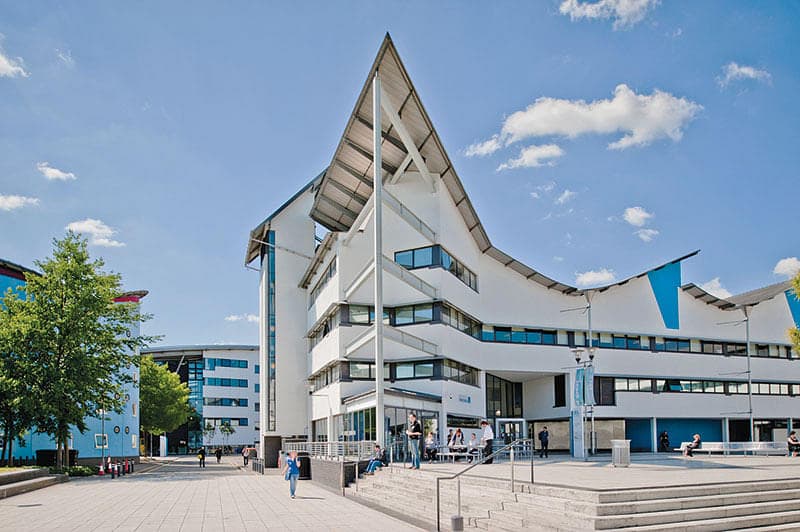MODULES
Year 1
CORE MODULES
- Anatomy and Assessment Skills 1
- Introduction to Physiology
- Anatomy, Assessment and Treatment Skills- Upper Limb
- Physiotherapy Clinical Skills
- Professional Practice (Mental Wealth)
- Introduction to Physiology 2
- Practice Based Learning 1
Year 2
CORE MODULES
Cardiovascular Physiotherapy
Neurological Physiotherapy
Research Methods
In this module you will develop an understanding of some of the methodologies commonly used so that you may contribute to the design of appropriate investigations and to an evaluation of the likely limitations and possible implications of the completed study. (These will include qualitative research methodologies, e.g. ethnography and phenomenology, as well as quantitative, e.g. the cross-sectional survey, case control and cohort studies, and the double-blind randomised controlled trial).
The module will develop your ability to organise, analyse and interpret data so that you may draw your own conclusions and may check whether researchers' claims appear to be reasonable and/or offer a distorted representation of the evidence.
You will develop an understanding of some of the questions commonly asked so that you may contribute intelligently to the collection of service-related data and be ready to modify your thinking and amend practice accordingly. (These will include questions about the cause of a condition, the relative efficacy of alternative interventions, and the relative cost of alternative modes of delivery, but they will also include questions about the effect of practice on outcome, the extent to which professional standards have been implemented, the management, evaluation, and improvement of performance, and the satisfaction of patients).
Physiotherapy Rehabilitation
This module builds on the basic background knowledge and skills gained from level 4.
Patient cases will be utilised to demonstrate the application of fundamental Physiotherapy rehabilitation principles.
Exercise prescription skills introduced in level 4 will be developed by applying knowledge of exercise physiology, biomechanics and anatomy.
By the end of the module, you will be able to design, facilitate and progress basic, safe, appropriate and effective rehabilitation plans for patients presenting with movement dysfunction.
Clinical reasoning will be introduced to interpret clinical findings, provide a rationale for treatment choice(s) and assist in the evaluation of proposed interventions.
Knowledge of common pathologies across the human lifespan will be applied to patient presentations.
Analysis and evaluation of assessment and intervention will be supported by reference to current literature and evidence-based practice.
Physiotherapy Rehabilitation
This module builds on the basic background knowledge and skills gained from level 4.
Patient cases will be utilised to demonstrate the application of fundamental Physiotherapy rehabilitation principles.
Exercise prescription skills introduced in level 4 will be developed by applying knowledge of exercise physiology, biomechanics and anatomy.
By the end of the module, you will be able to design, facilitate and progress basic, safe, appropriate and effective rehabilitation plans for patients presenting with movement dysfunction.
Clinical reasoning will be introduced to interpret clinical findings, provide a rationale for treatment choice(s) and assist in the evaluation of proposed interventions.
Knowledge of common pathologies across the human lifespan will be applied to patient presentations.
Analysis and evaluation of assessment and intervention will be supported by reference to current literature and evidence-based practice.
Practice Based Learning 2
Year 3
CORE MODULES
Practice Based Learning 3 (Elective)
Complex Practice 1
Practice Based Learning 4
Research Governance and Leadership
In this module you will discuss the relationship between political, economic, technical, environmental and legal factors influencing practice (PESTEL) and the delivery of high quality packages of patient services. The module will provide you with the knowledge, skills and attitudes in order to understand complex originations and systems of work; manage and facilitate change; and analyse your own employability competencies and career management skills and outline your future development either in employment or enterprise.
Specifically this module will
- Advance your understanding of research methodologies in the clinical setting and enable you to design a research project/research proposal
- Develop an understanding of organisation, analysis and interpretation of data; preparing you to assess the implications of research and evaluation for professional practice and use research in the development and advancement of professional practice e.g. audit, service evaluation, patient satisfaction
- Finally, this module will help you to provide evidence of your development of personal skills and ethical qualities required when conducting research/practice evaluation.
Complex Practice 2
Neuromusculoskeletal Assessment and Trauma
Practice Based Learning 5

